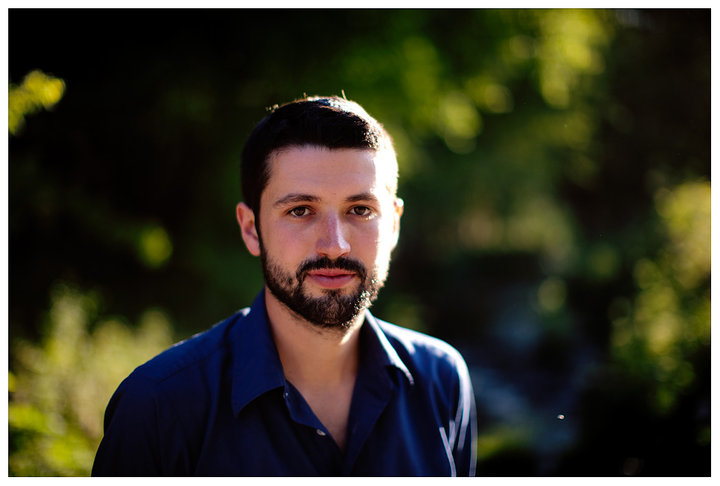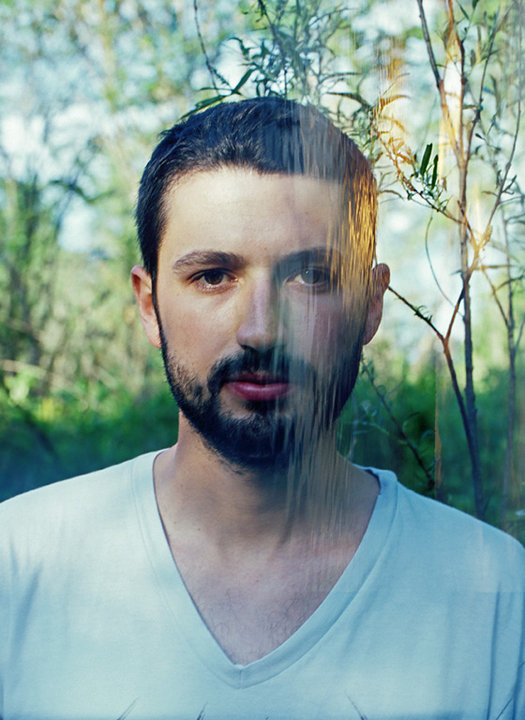This is a general admission, standing event.
4
S. Carey

S. Carey’s chosen musical expression is a hugely beatific, restorative panorama of beauty – perfect given how landscape and the wonder of nature inspire much of Carey’s imagery. His new album Range of Light – the follow-up to his 2010 debut All We Grow – takes its title from the name that 19th century naturalist John Muir – Carey’s hero – gave to California’s Sierra Nevada, and follows suit with a dazzling array of musical light and shade, drawn from Carey’s love of jazz, modern classical and Americana. Like a weathered mountain range changing shadow form and color, or the ebb and flow of a river’s current, his music is simultaneously restful and rhythmic, complex and simple, and always evolving.
“My music has specific connections to nature and place, my surroundings, and my experiences,” says Carey. “I travelled the Sierra Nevada area many times as a boy, fishing small mountain streams, hiking to the top of ‘half dome’, exploring the Redwood groves at Wawona, in awe of the Yosemite Valley. The term, ‘Range Of Light‘, to me, denotes the spectrum of light and dark a person can have in their life – peaks and valleys of happiness, sorrow, challenges and growth – for me most recently and more specifically: marriage, having a baby, and maintaining a spiritual connection to nature, place, friends and family as an adult.”
While he studied classical percussion and piano at the University of Wisconsin in Eau Claire, Carey imbibed rhythmic minimalists such as Steve Reich and Philip Glass. Immediately after graduating in 2007, he caught wind that Eau Claire resident Justin Vernon was forming a band to take his For Emma, Forever Ago opus on the road. Carey learnt the drum and vocal parts for the album, rehearsed with Vernon, and has been a mainstay of the Bon Iver live band ever since.
While on tour with Bon Iver, Carey developed his own song writing ambitions, and after many less than frequent recording sessions between tours, released All We Grow in 2010. Those nine songs sat between a folk/modern classical hybrid and rarefied jazz climes. Carey’s warm melodic nuances, reflected in the lush folds of his singing, added to the mutable percussive syncopations of his instrumentation.
Range of Light incorporates elements of his previous work, but also amplifies Carey’s percussive proclivities, and is altogether more developed than its predecessors, with more input on the performance and even composition side from the band of musicians and best friends he assembled originally to bring All We Grow to life in the live setting. “There were times during recording sessions when there were three percussionists, all with different styles and fortes, playing at once, adding different textures.”
From the flurry of violins over a circular rhythm in ‘Crown The Pines’ and the beautiful cries of ‘Alpenglow’, to the pensive depths of songs like ‘Fire-scene’ and ‘The Dome’, Range of Light is a still life of an artist in this particular stage of his life; a stage that has been met with the highest of peaks and the lowest of depths all within the range each of us treads through.
Photo credit: Cameron Witting
Califone

There are many kind of stitches: seams to secure sleeves into armholes… sutures closing wounds and deep incisions… loops or crosses of embroidery floss… a sudden pain in the side. Stitches, the new album from Califone, touches on all these definitions, its episodes of discomfort and healing rendered with exquisite beauty and craftsmanship.
Intimate timbres—garage sale drum machines, slack guitar strings, hushed vocals—offset the album’s cinematic inclinations. The listener moves through a landscape of Old Testament blood and guts, spaghetti Western deserts and Southwestern horizons, zeroing in on emotions and images that cannot be glanced over. Motes of dust dance briefly in afternoon sunlight.
“This is the only record I’ve made in my life where none of the work was done in Chicago,” says Califone’s Tim Rutili. The writing and recording began in Southern California, then continued in Arizona and Texas. “Those dry landscapes and beaches and hills and shopping malls all made it into the music,” he acknowledges. Uniquely homespun elements are interwoven into the songs, too, including sounds Rutili recorded in his backyard during rainfall and while driving in his car.
Brass, pedal steel, and strings color in the edges and outlines songs like “Frosted Tips,” “We Are A Payphone,” “Moonbath.brainsalt.a.holy.fool” and “Moses,” yet Stitches is no Ennio Morricone-meets-Cecil B. DeMille pastiche. Gritty electronics, the mesmerizing thrumming of tablas, and eerie keyboards also pepper these ten new selections. A cartographer could spend lifetimes mapping the terrain of Stitches.
Archetypes and mythological figures rub shoulders with bruised civilians throughout this odyssey. Though Rutili is not a religious man, episodes from the Bible in particular kept entering his psyche as he wrote. “I’m fascinated with why some stories and characters resonate and last for thousands of years, and are so easily transposed onto all our lives and rites of passage, no matter how absurd or surreal they are.”
Rutili has not been idle in the years since the release of Califone’s critically acclaimed 2009 album All of My Friends Are Funeral Singers. He wrote scripts and painted and collaborated on the music for several films, including the score for the 2012 documentary Beauty Is Embarrassing and the Starz TV series BOSS. He lost a few band members and stopped all Califone activity for about a year. “Then one day I woke up and started writing songs again.”
At first he churned out a lot of songs that didn’t make the cut. He kept moving. The larger themes that would eventually reach fruition on Stitches began to emerge. “During this process, I started to really look at myself and find a clearer, more honest voice,” he reveals. “I forced myself to write as much as possible. I allowed myself to be crabby and vulnerable as much as I could stand it… and slowly the songs got better.”
Eventually Rutili commenced recording with Griffin Rodriguez in Los Angeles, Michael Krassner in Phoenix, and Craig Ross in Austin, along with a raft of guest musicians. “We treated each song as its own particular planet. Bringing in different people and recording in different places helped bring some tension to the whole thing. I wanted this to be a more schizophrenic record, stitching together conflicting textures and feels.” Rutili’s old Red Red Meat colleague Tim Hurley stayed with him for a few months and they recorded together for the first time since Califone’s eponymous 1998 debut EP.
In some regards, Stitches harks back to those earliest days of Califone. There was more home recording, and musicians came and went as the songs dictated. “It was a much more solitary process, and that freed me up to feel less self-conscious about singing and writing more personal lyrics.” Yet the ultimate outcome sounds like the work of an artist reborn. “I tried to keep the songs visual and poetic, but it was more important to allow myself to feel and be vulnerable and not hide in the music,” Rutili says. “Instead of writing from my balls and brain, this time I wrote from the nerves, skin, and heart.”
Stitches —the word and the album—can mean different things to many people. Your own interpretations are welcomed and encouraged.
Califone on Facebook
Califone official site
@califonemusic on Twitter
Doe Paoro

Doe Paoro on Facebook
Doe Paoro on Bandcamp
photo credit – Gary He
presented by PopGun



